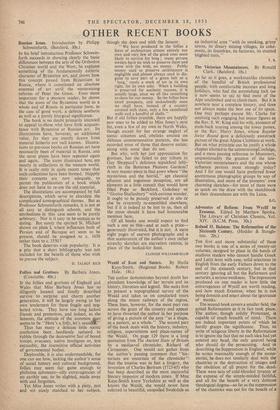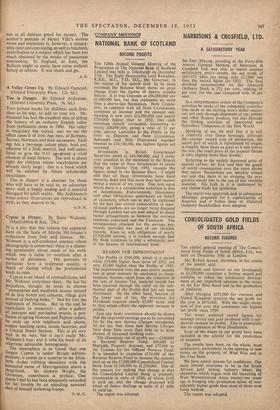Advocates of Reform: From Wyclif to Erasmus. Edited by Matthew
Spinka. The Library of Christian Classics, Vol. XIV. (S.C.M. Press. 30s.)
THE first and more substantial of these two books is one of a series of twenty-six volumes, designed to place in the hands of studious readers who cannot handle Greek and Latin texts with ease, solid selections in English from the early Fathers down to the end of the sixteenth century, but in that century ignoring all but the Reformers and sectaries, a serious weakness. The impression produced on one reader is how little the extravagances of Wyclif are worth reading, and how much Erasmus, when he is not being donnish and smart about the ignorance of monks.
The second book covers a smaller field, the actual Reformation as it in fact took place. The author, though solidly Protestant, is capable of much breadth of mind. There are indeed important points of which he hardly grasps the significance. Thus, to write of religious liberty in the Reformation is to ignore the fact that no such idea had yet entered any head, the only quarrel being who should do the persecuting. And in describing the Suppression in England, while he writes reasonably enough of the mona- steries, he does not similarly deal with the chantries or the destruction of images and the abolition of all prayer for the. dead. These were acts of cold-blooded tyranny at the expense of the simple-minded faithful, and all for the benefit of a very dubious theological dogma—so far as the suppression of the chantries was not for the benefit of a not at all dubious greed for money. The author's analysis of Henry VIII's serious views and intentions is, however, a remark- ably clear and convincing, as well as balanced, contribution to a subject which has been too much obscured by the smoke of passionate controversy. In England, at least, the Reform might so easily have come without heresy or schism. It was touch and go.
A. B.











































 Previous page
Previous page